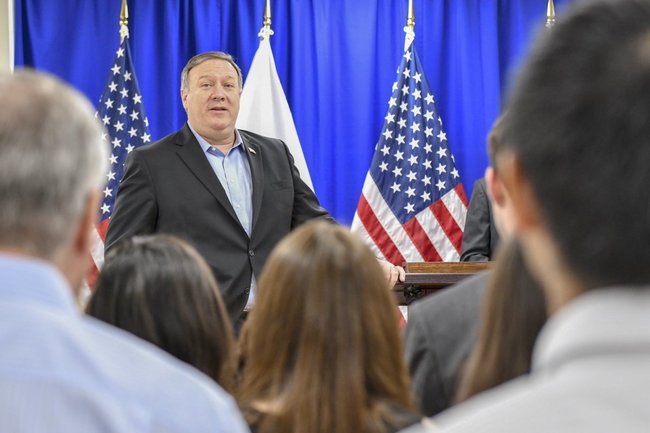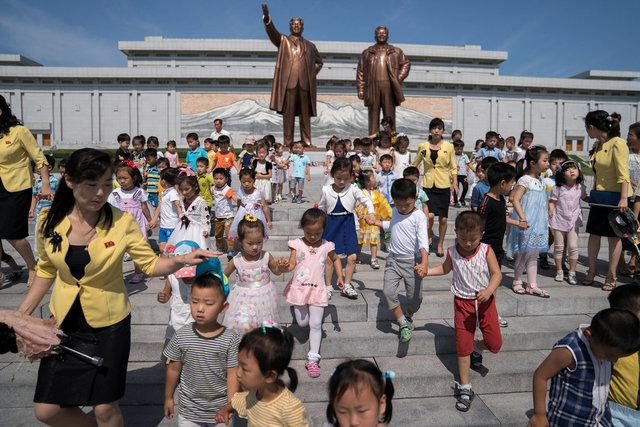 |
|
US Secretary of State Mike Pompeo answers reporters’ questions in Tokyo on July 8 regarding his third visit to North Korea. (Pompeo’s Twitter account)
|
Ending Korean War emerges as major point of contention after Pompeo’s third North Korea visit
The formal declaration of the end of the Korean War has emerged as a “hot potato” in the process of implementing the joint statement produced by the North Korea-US summit in June 12. Shortly after US Secretary of State Mike Pompeo left Pyongyang on July 7, the spokesperson of the North Korean Foreign Ministry released a statement slamming the US for its “wishy-washy, lukewarm attitude toward formally ending the war.” Declaring the end of the war is on the agenda of South Korean President Moon Jae-in, who has taken the lead in pushing for that declaration as a major step toward building a peace regime on the Korean Peninsula. As such, South Korea would also be a party in that declaration. That is why the Blue House has been exceedingly circumspect on the matter. “Since North Korea and the US have a serious and sincere stance, we expect this matter will be resolved successfully,” said Blue House Spokesperson Kim Eui-kyum. During a statement on the evening of July 7, North Korea said that during the high-level talks between Workers’ Party of Korea Vice Chairman Kim Yong-chol and Pompeo, Kim “proposed discussing the issue of declaring the end of the Korean War on the 65th anniversary of the signing of the armistice agreement in order to build a peace regime on the Korean Peninsula.” But North Korea criticized the US for adopting “the stance of imposing conditions and making excuses to further postpone the declaration of the end of the war, which has already been agreed to, without making any mention of the issue of building a peace regime on the Korean Peninsula, which is the fundamental issue for preventing the situation from deteriorating into war.” “Declaring the end of the war was also specified in the inter-Korean Panmunjeom Declaration, and President Trump expressed even more enthusiasm about it during the North Korea-US summit,” the North Korean statement also reminded readers. Cho Sung-ryul, senior research fellow for the Institute for National Security Strategy, interpreted this as expressing North Korea’s “dissatisfaction with the US for not talking about a security guarantee.”
 |
|
Children head back to school after paying their respects to statutes of Kim Il-sung and Kim Jong-il at Pyongyang’s Mansu Hill Grand Monument on July 7, the day of US Secretary of State Mike Pompeo’s high-level talks with WPK Vice Chairman Kim Yong-chol as well as the 24th anniversary of Kim Il-sung’s passing. (AP/Yonhap News)
|







